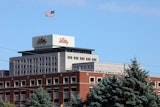UPS recently announced new service levels for managing a range of temperature-sensitive pharmaceutical products. UPS feels the global growth and increased regulation continuing to be seen in the transportation of cold chain pharmaceuticals has created the need for tiered service level offerings that leverage the speed of air and the economies of ocean freight.
Chem.Info recently sat down with Dirk Van Peteghem, Vice President, Healthcare Logistics at UPS to get more details on the program.
Q: What have been the primary factors driving the need for these new service offerings?
A: There are a number of factors that prompted us to develop these new service offerings. Culturally at UPS, we work very collaboratively with our customers. These companies vary in size, origin and geographic scope. However, what we have been hearing from customers is very consistent.
Customers tell us that regulation is expanding in all of their major markets beyond the traditional cold-chain refrigerated, high-value and high-risk commodities transportation. To be compliant with the new GxPs, our customers wanted more transportation options with the type of quality controls that UPS Temperature True® spearheaded in the market.
They also told us that they needed more cost-effective solutions to increase the productivity of their transportation dollars. They were particularly curious about using ocean as a mode of transportation but needed guarantees to make this option compliant with their standards.
Our annual healthcare logistics survey confirmed that the top global supply chain concern for 63 percent of logistics decision makers surveyed is regulatory compliance. Product security (53 percent) and cost management (51 percent) are the next top areas of concern—all of which are applicable to shipments moving through the cold chain.
Q: Are there any specific areas within the pharmaceutical market that you have seen increased business from?
A: We are seeing growth across all areas of the healthcare industry, and the pharmaceutical market in particular. As technology advances and patient needs evolve, there are an increasing number of products in the marketplace that are temperature-sensitive, ranging from frozen to controlled-room temperature (CRT) products.
The growing marketplace is also reflected in data and trends we are seeing. For example, according to the 2013 version of the Cold Chain Source Book, more than $7 billion will be spent on cold chain logistics in 2013, in a global biopharma logistics market of $64 billion.
As a large global supply chain solutions provider in this market, we are benefiting from the same macro-trends that are shaping the future of the pharmaceutical industry. We have seen over the last few years an increasing demand from biotech manufacturers and we see their growth translate into an additional demand for our services.
Our healthcare business is also evolving in terms of geographies with an increasing share captured by “pharmerging” countries, which include the BRICs, Mexico, South Africa, Turkey and Eastern Europe. Another interesting trend is an increasing demand for direct-to-patient solutions, especially for specialty pharmaceuticals.
Q: What overall advice, from a logistics and shipping perspective, would you offer to pharmaceutical companies?
A: There are many factors to consider for each product when planning shipping and understanding each product's needs. Don't get overwhelmed by all of the requirements and options- take it step-by-step.
When engaging a third-party logistics provider, choose one with extensive experience in temperature-sensitive shipping, regulatory compliance and a global network to help give you peace of mind and allow you to focus on the core of your business.
Selecting a logistics partner than can cover a wide range of products and geographies is vital, and with the increasing level of regulations, it would be advantageous to avoid engaging many providers, which can generate additional risks or more work to coordinate all the moving parts. It is also vital to require the highest possible visibility on the operating procedures and quality processes that the logistics partner is implementing to guarantee the highest level of compliance.
Q: Are expanded traceability capabilities included with these offerings? In other words, in addition to tracking the shipment’s location, can shippers also see if the temperatures or other environmental conditions have changed or remained constant?
A: Companies can choose the level of control and in-transit monitoring that makes the most sense for their freight shipments. At the highest level, we offer the most control over shipments, as well as the greatest ability to intervene should we need to. Across the board, we can monitor any shipment’s internal temperature and take action accordingly if needed.
We can detect any temperature excursion, mitigate it and investigate its cause. This allows us to ensure product integrity is preserved and capture key learnings to make our processes even more robust moving forward. We also offer a number of services to provide 24/7 monitoring and intervention capabilities, utilizing our integrated global technology and monitoring control towers across the world.
Q: Pharmaceutical products are highly specialized. How does UPS take steps to ensure they can handle some of the very specific requirements of pharmaceutical companies?
A: A number of years ago, UPS made healthcare a major strategic priority for the company. Since the acquisition of Livingston in 2000, our investments in this industry have been continuous by both building out UPS’s capabilities and healthcare-dedicated facilities, and through external acquisitions, the latest of which included Pieffe Group (Italy) in 2011 and CEMELOG (Hungary) in 2013.
We work collaboratively with a wide variety of pharmaceutical companies to optimize their supply chain at very different levels. We ship their packages domestically and internationally or we transport their freight via ground, air and ocean. We can also manage their distribution and warehouses. All of these touch points have helped us build a tremendous pharmaceutical logistics expertise that differentiates us in the market.
Also, our UPS dedicated healthcare logistics team holds nearly 1,000 regulatory licenses that help our customers remain compliant – anywhere in the world.























